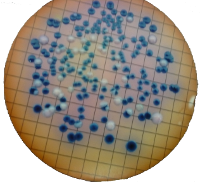Coliform are a broad class of bacteria found in our environment, including the the digestive systems of man and warm-blooded animals and hence in feces and manure. They are also found in soil, on plants, and in surface water. They are rod-shaped Gram-negative non-spore forming organisms. They include Escherichia coli (E. coli), Enterobacter, and Citrobacter.

Coliform counts can generally be very high in runoffs from woodland, pastures, feedlots, septic tanks, sewage plants, animals and wild fowl feces. They may be associated with the sources of pathogens contaminating water.
Since coliform bacteria are found in the digestive tract of warm blooded animals including man, they are routinely used as indicators of fecal contamination, especially in the United States of America and Canada.
Coliform bacteria will not likely cause illness to humans but their presence in edible products or water is an indication of potential presence of pathogenic microorganisms.
Drinking water quality is determined by analyzing water samples for total coliform and, if necessary, fecal coliform. Water samples for coliform testing are transported to the laboratory in cooled containers. If possible samples should be sent to the laboratory within two hours after collection in a cold-box containing ice-blocks. Samples could also be sent by courier to the lab and must be received within 30 hours of sample collection. Presence of Fecal coliform and E. coli indicates that the water may be contaminated with human or animal wastes and may therefore contain disease causing bacteria. Fecal coliform and E. coli are subgroups of the total coliform. Fecal coliform, like other bacteria, can usually be inhibited in growth by boiling water or by treating with chlorine.
Presence of coliform within swimming pools can be considered as an indication of fecal contamination or poor hygiene (i.e., contamination from shoes or leaves in outdoor pools). Fecal coliform and E. coli only come from human and animal fecal waste and therefore are better indicators of fecal contamination. Coliform and intestinal pathogens in general are easily destroyed by pasteurization (at 70 °C for 30 minutes), and this may explain why pear and abacha, which require no heat for preparation, have relatively higher coliform counts.